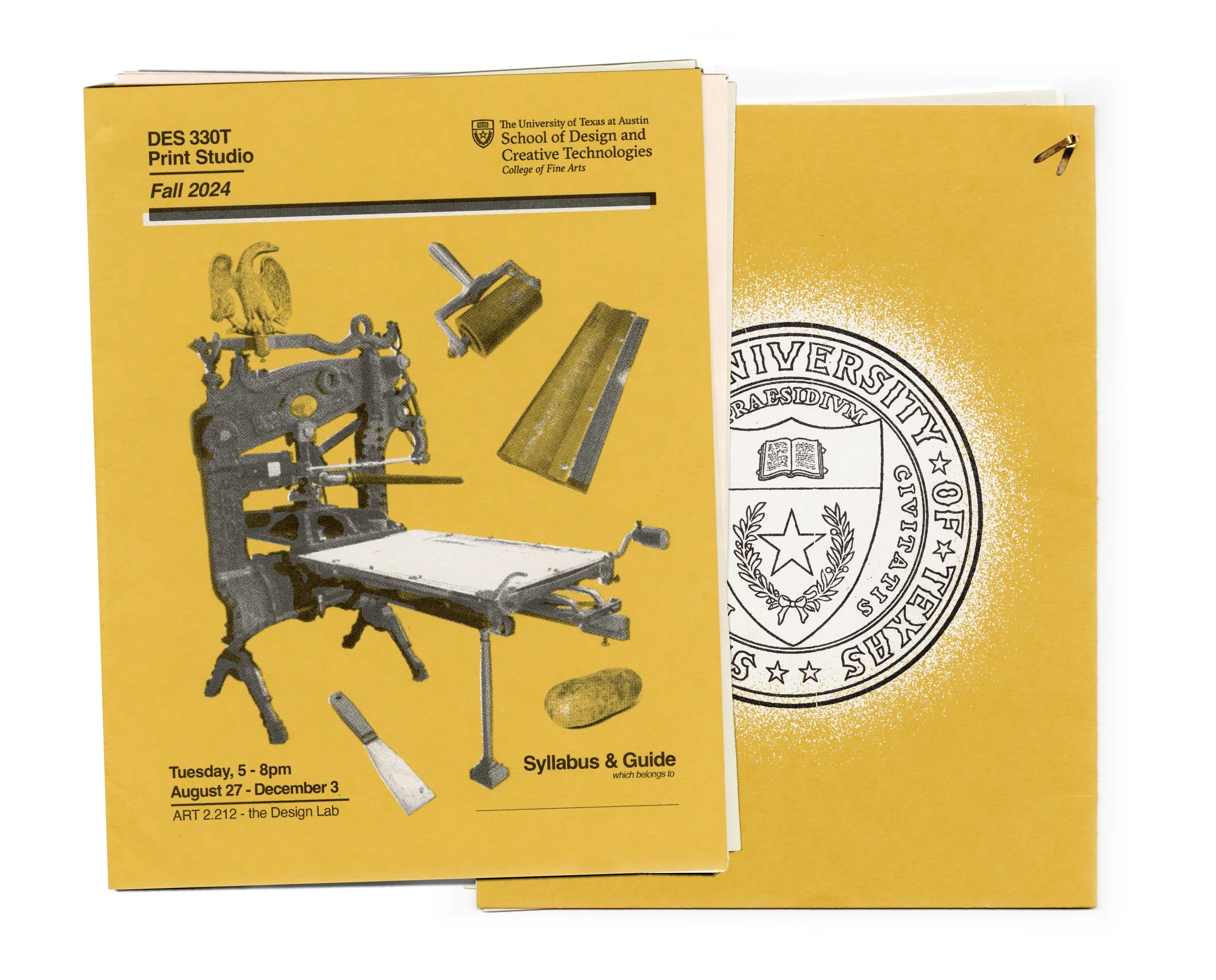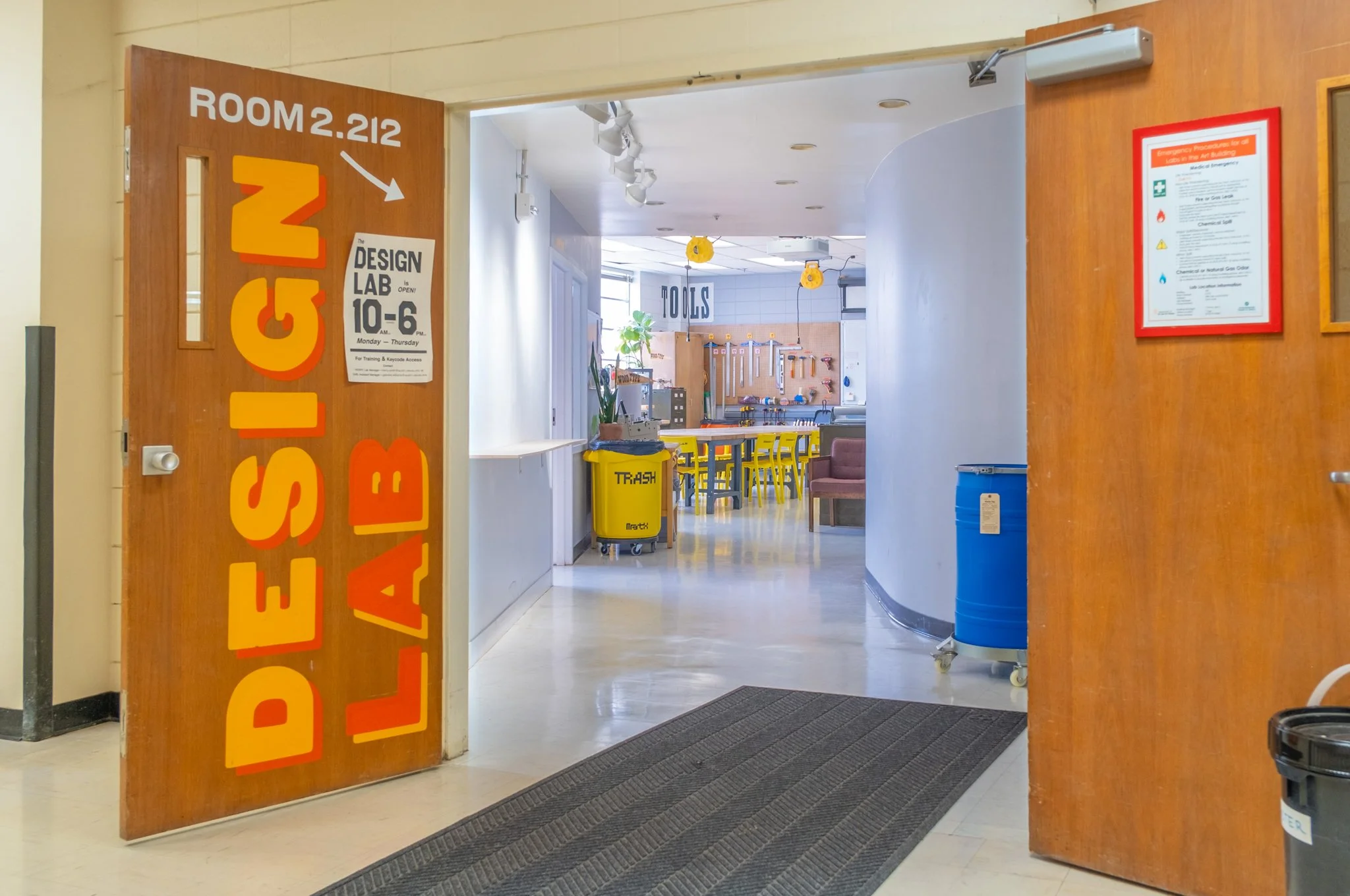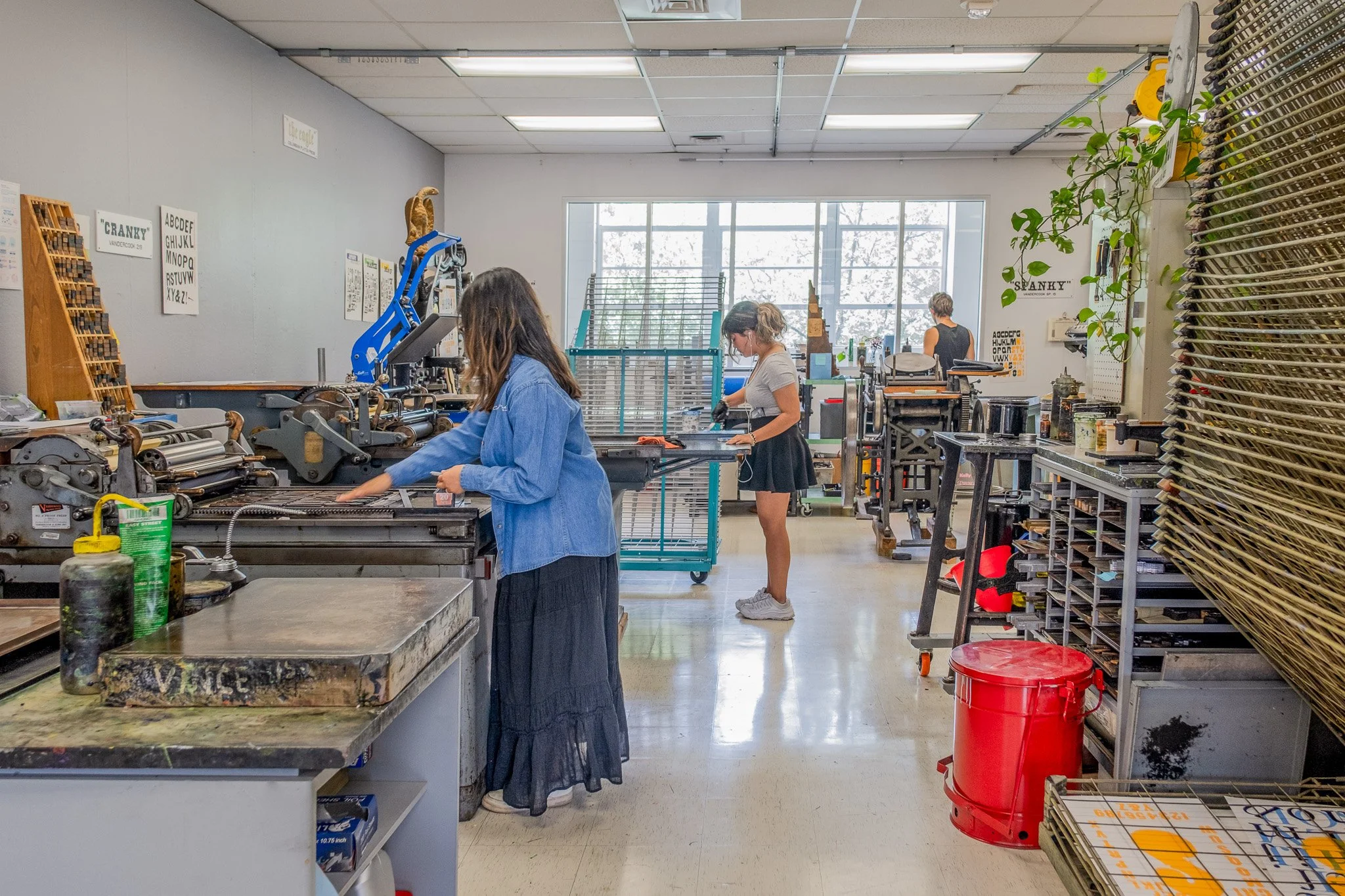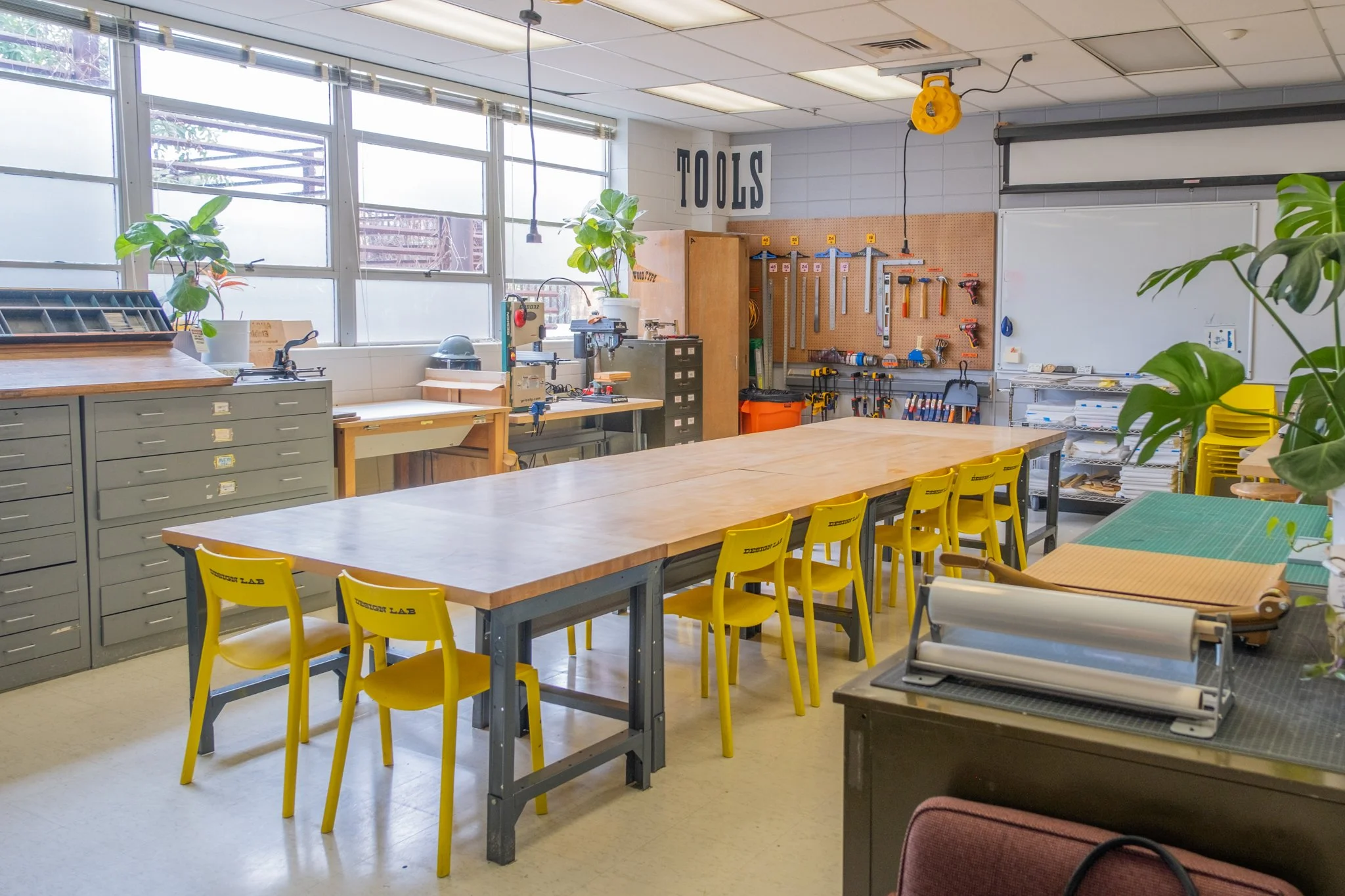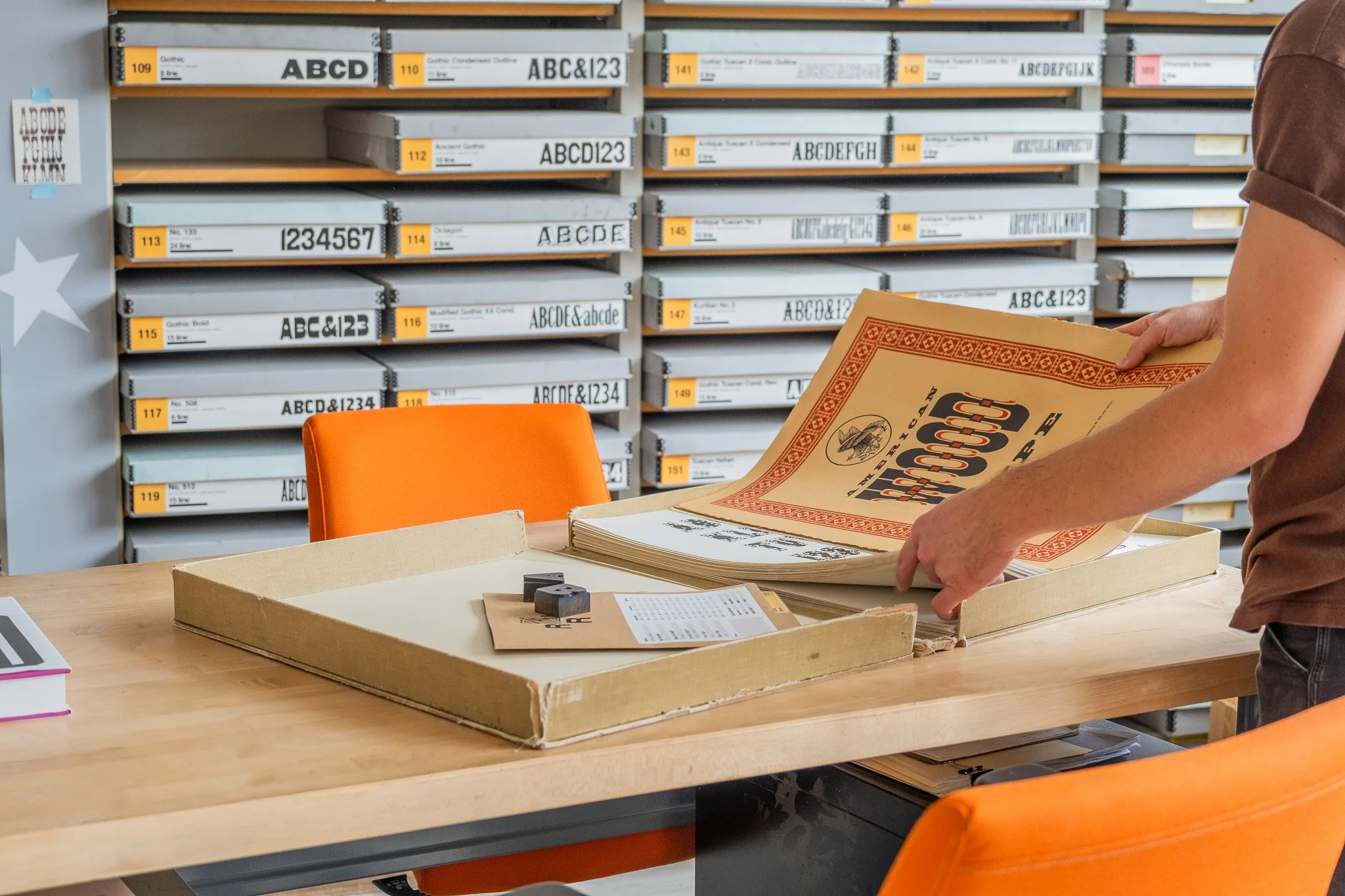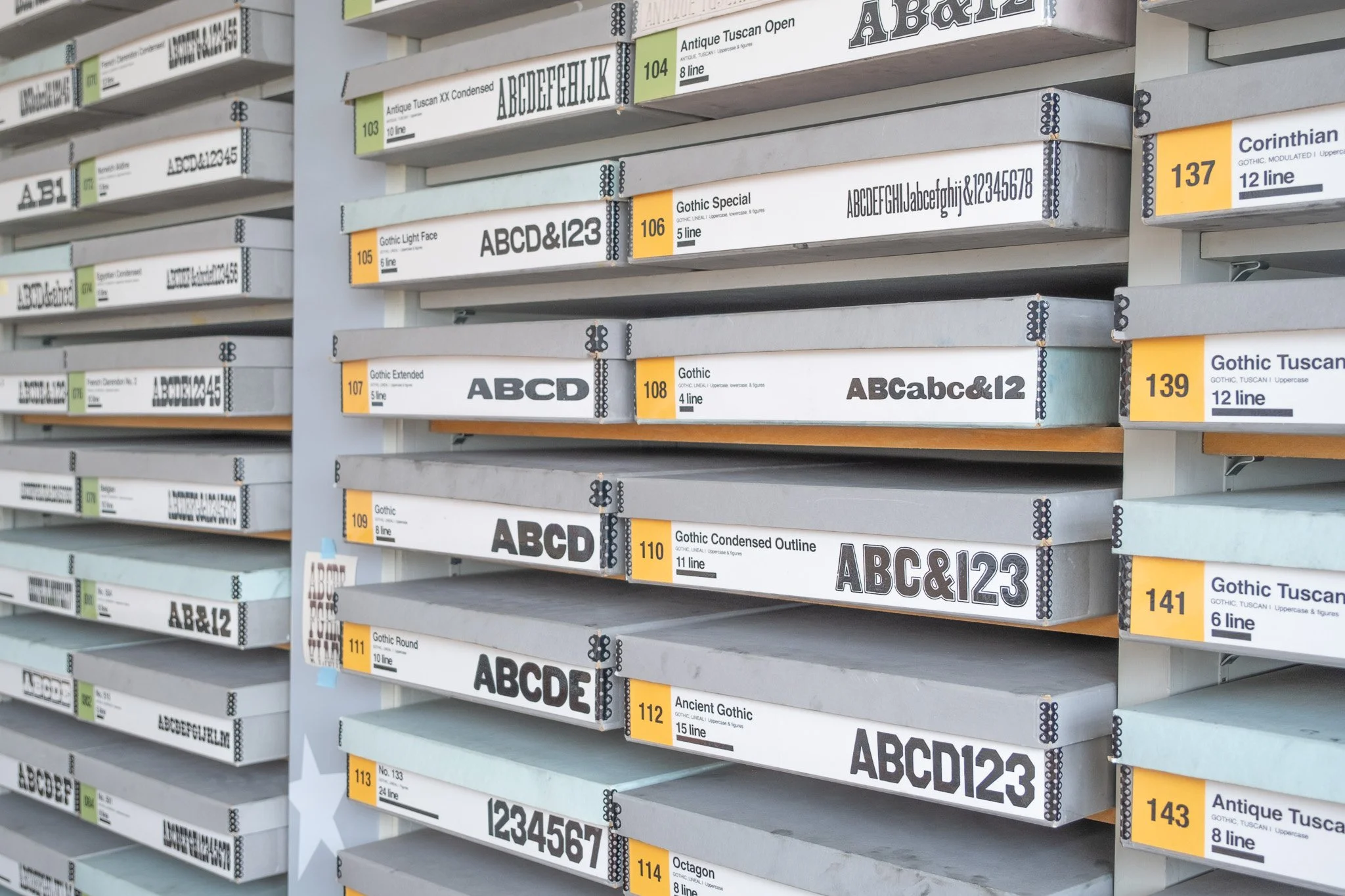Education & Research
BIO
Henry Smith is an artist, designer, and faculty member in the School of Design and Creative Technologies (SDCT) at UT Austin. He currently serves as the custodian of the Rob Roy Kelly American Wood Type collection (the RRK)—a working archive of 19th century letterpress equipment, which is a core aspect of the SDCT curriculum.
Smith received his BFA in Studio Art at UT Austin in Spring 2017, focusing in printmaking and sculpture. Following graduation, Smith began working as a freelance printer, designer, and fabricator. He also collaboratively organizes exhibitions and art events in the Austin community. Smith’s work is heavily focused in graphic design, printmaking, and typography, and the RRK collection has become embedded as a core aspect of his research and practice.
More about my practice and experience is available on the “about page”
Since joining SDCT in January 2019, I’ve worked to revitalize spaces and resources, namely the Design Lab, the home of the RRK collection. Throughout 2020-21 we conducted a major rejuvenation of the Lab, which coincided with planning and designing a wood shop in the newly-renovated Anna Hiss Gym. This shop launched in 2022. Both spaces are supported by my team of about 10 student employees who act as caretakers of the spaces, and co-designers of their systems and aesthetics.
A primary initiative of my work in education overall is to make resources more accessible, and to foster a more holistic creative education. This approach to designing and cultivating creative spaces is paired with a focus in analog technology. As an ambassador to all fabrication facilities in the School of Design, I facilitate workshops and teach segments of core classes. I also create and oversee events, exhibitions, and extra-curricular opportunities with students and faculty that relate to our facilities. We hope to share these unique resources with the community as much as possible, and to inspire a contemporary connection with antique technologies.
Since 2021 I’ve been teaching a course entitled “Print Studio,” which is focused on training Design students in the basics of printmaking. We cover the fundamentals of letterpress and screen printing. Students are then encouraged to push the boundaries of the media, and make connections between new and old technology.
Also in 2021, we began hosting the Design Lab student residency program, a paid six-week extracurricular experience for undergraduate design students. This is an exciting and unconventional opportunity for students to delve into their print practice outside of the classroom structure. This program affords students paid opportunities to connect with professional projects, and to delve into explorations of the RRK collection and other printmaking resources. A focus of this project has been to share the RRK collection with our community. Austin has an acclaimed history of live music posters and printmaking. Our hope is to participate in this continued legacy, by inspiring and enabling our students to embrace the power of the collection.
In 2022 we launched the RRK Summer Residency, during which we have focused on an extensive project to reprint the entire collection, and publish it as a collective document of specimens. In 1964, the design educator and scholar of wood letterpress type Rob Roy Kelly published a folio of 19th-century type specimens from his collection of wood type he had been amassing since the early 1950s. Now, 60 years since the original publication, we are revisiting the folio to produce a new edition. The new folio is a re-contextualization of the collection for a new century, for new technologies, and for new generations. It will be a representation of the collection as it now stands, in a very different time and place from its origin, produced by a diverse group of young designers. This is an ongoing experiment, and we are only scratching the surface of this endeavor.
A major milestone for the project was an exhibition of our progress thus far, presented at the Visual Arts Center in January of 2024.


